Understanding the Importance of Key Locker Cabinets in Modern Security Solutions
Table of Contents
- The Evolution of Key Locker Cabinets in Security Technology
- The Role of Key Locker Cabinets in Preventing Unauthorized Access
- Top Features to Look for When Choosing a Key Locker Cabinet
- Comparing Digital and Mechanical Key Locker Solutions
- Best Practices for Implementing Key Locker Cabinets in Your Security Strategy
- Case Studies: Successful Key Locker Cabinet Deployments in Various Industries
- FAQS
- Conclusion
- Related Posts
In today's fast-paced and security-conscious world, the importance of effective key management cannot be overstated. Key Locker Cabinets have emerged as a crucial component in modern security solutions, providing a structured and secure way to oversee key usage across various environments. According to a recent report by the Security Industry Association, nearly 75% of businesses have reported incidents related to lost or mismanaged keys, underscoring the need for robust key control systems. At Beijing Landwell Electron Technology Co., Ltd., we understand this necessity and are dedicated to offering simple and flexible solutions for key management. Our innovative Key Locker Cabinets empower organizations to maintain complete control and oversight of key usage, thereby enhancing overall security and minimizing risks. Through the implementation of effective key management solutions, businesses can safeguard their assets and ensure a secure operational environment.
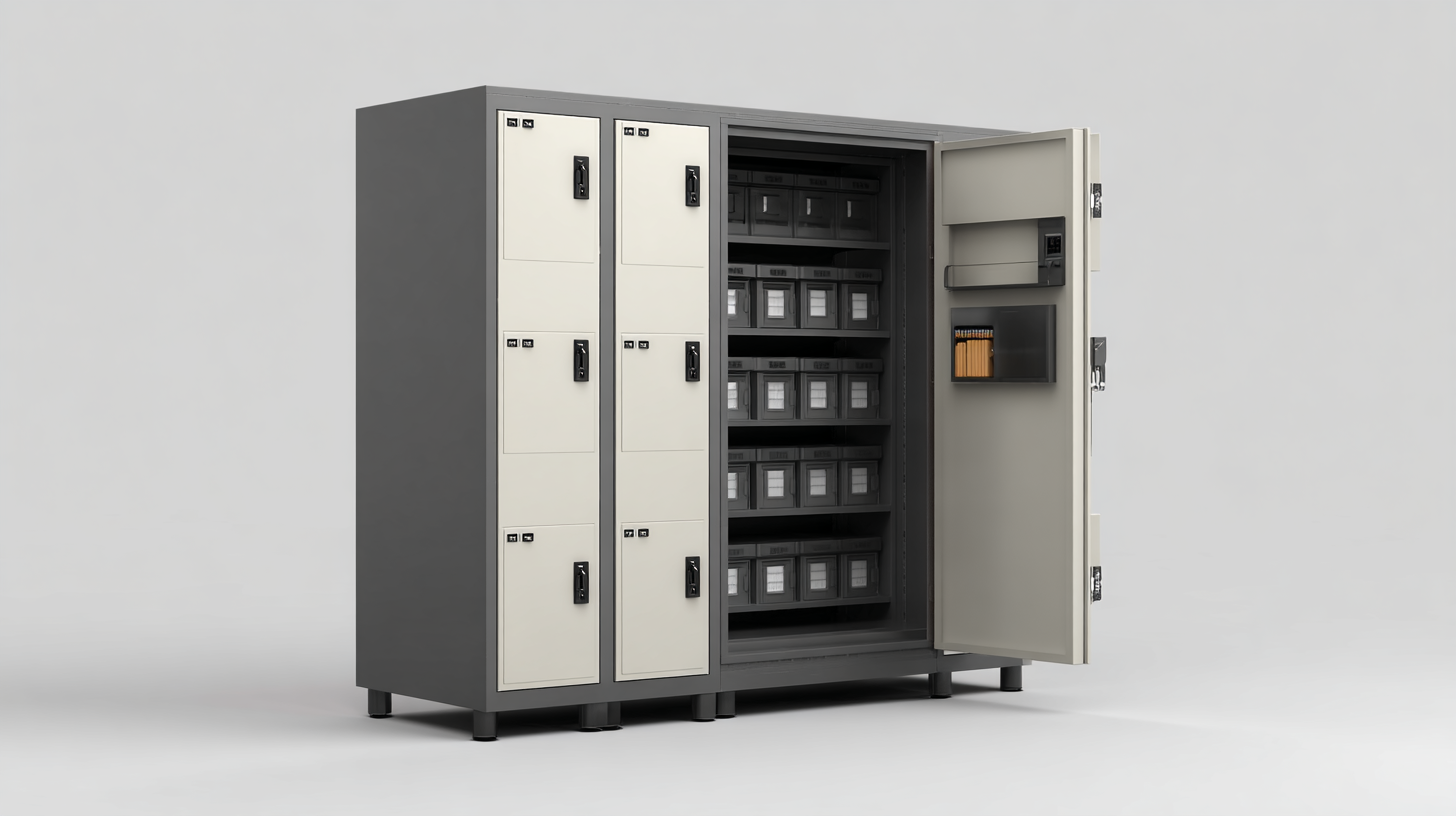
The Evolution of Key Locker Cabinets in Security Technology
The evolution of key locker cabinets in security technology has transformed the way organizations manage and protect their keys. Initially, these cabinets were simple metal boxes with basic locking mechanisms, offering minimal protection against unauthorized access. However, as security needs grew more complex, so did the technology behind key lockers. Modern cabinets now incorporate advanced features such as electronic locks, biometric access, and real-time tracking systems, ensuring that only authorized personnel can access sensitive keys.
As security breaches became more prevalent, the demand for enhanced safeguarding measures led to the integration of smart technology into key locker cabinets. These innovations not only provide a higher level of security but also improve efficiency in managing physical keys. With user-friendly interfaces and cloud connectivity, organizations can monitor access, receive alerts, and maintain an accurate record of key usage. This shift reflects a broader trend in security solutions, where technology is leveraged to enhance operational safety and accountability, ultimately reshaping the landscape of key management.
Understanding the Importance of Key Locker Cabinets in Modern Security Solutions
The Role of Key Locker Cabinets in Preventing Unauthorized Access
In today's world, maintaining security is more critical than ever, and key locker cabinets play a significant role in preventing unauthorized access. These specialized storage units are designed to securely hold keys, fobs, and access cards, protecting them from theft or misuse. By organizing and securing keys in a designated cabinet, organizations can ensure that only authorized personnel have access, significantly reducing the risk of breaches that can lead to theft or damage.
Key locker cabinets not only enhance physical security but also aid in accountability. Many modern cabinets come equipped with advanced locking mechanisms, digital keypads, or biometric scanners, which track who accesses the keys and when. This added layer of monitoring helps businesses keep a tight grip on who can enter sensitive areas, making it easier to identify any potential security lapses. Furthermore, with the ability to manage access remotely, these cabinets provide flexibility and control for businesses, adapting to dynamic demands while ensuring safety protocols are always upheld.
Understanding the Importance of Key Locker Cabinets in Modern Security Solutions
| Feature | Description | Benefits | Use Cases |
|---|---|---|---|
| Durability | Made from high-quality steel for long-lasting use. | Resists tampering and environmental challenges. | Ideal for facilities requiring secure key storage. |
| Key Management System | Organized racks for storing and tracking keys. | Improves efficiency and reduces the risk of lost keys. | Used in hotels, offices, and rental properties. |
| Access Control | Digital locks and keypads for controlled entry. | Prevents unauthorized access to sensitive areas. | Suitable for schools, hospitals, and corporate offices. |
| Size Options | Available in various sizes to fit different needs. | Flexible solutions for any organization size. | Used in government buildings, small businesses, and large corporations. |
| Mobility | Portable designs for easy transport. | Convenient for on-site and temporary requirements. | Useful for tradespeople and event organizers. |
Top Features to Look for When Choosing a Key Locker Cabinet
When selecting a key locker cabinet, several critical features should be considered to enhance security and usability. Firstly, durability is paramount; cabinets should be constructed from robust materials that can withstand tampering and environmental factors. Look for cabinets equipped with advanced locking mechanisms, such as electronic or biometric locks, to ensure that only authorized personnel have access to the keys. Additionally, a customizable shelving system can adapt to various key sizes and quantities, making the cabinet versatile for different organizational needs.
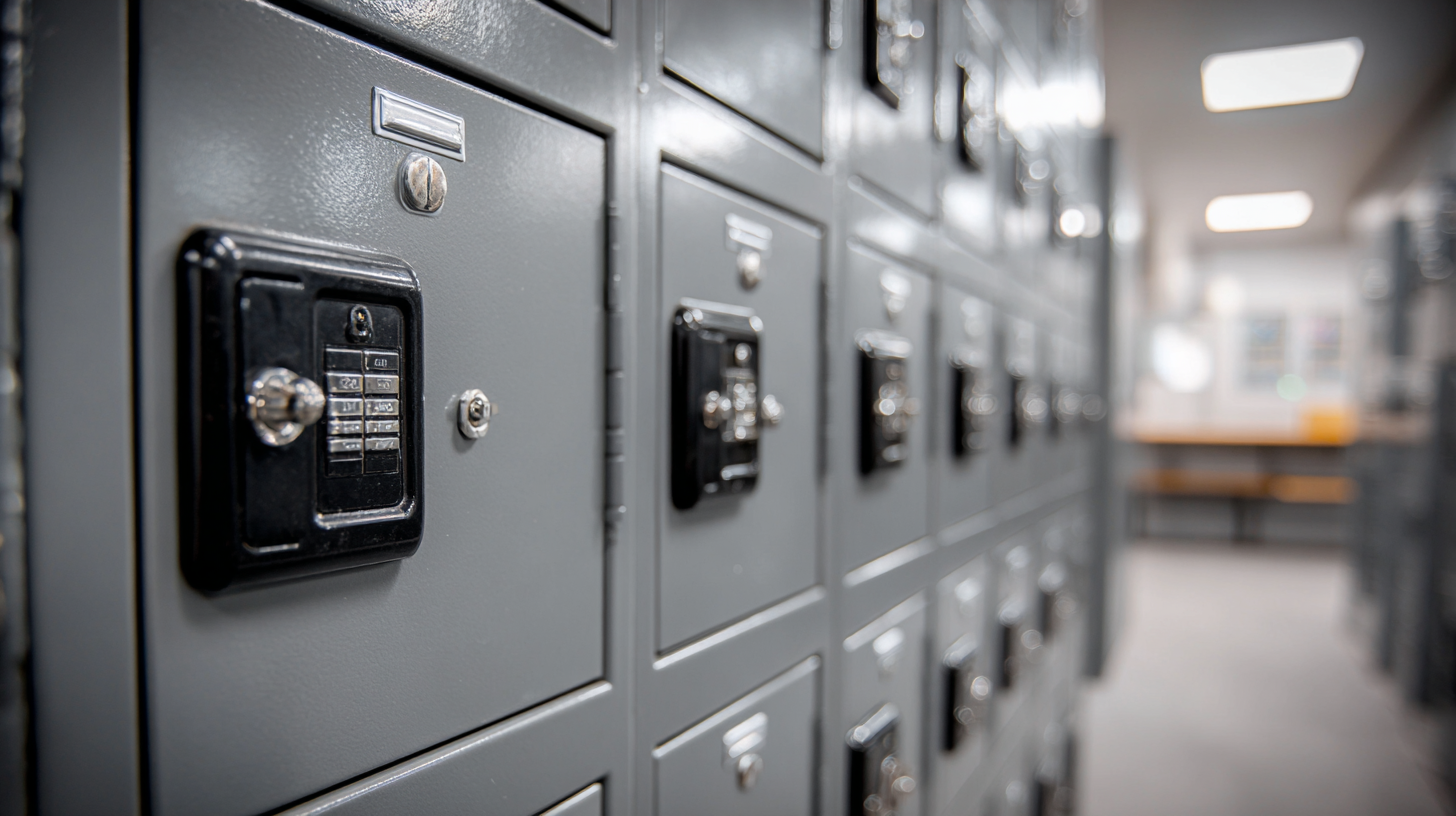
Another essential aspect is the capability for inventory management. Modern key locker cabinets often come with integrated tracking systems that log entries and exits of keys, providing operators with complete oversight of key usage. This feature aligns well with Landwell's mission to offer simple and flexible key management solutions for diverse environments. By investing in a high-quality key locker cabinet with these features, businesses can significantly enhance their security protocols, ensuring that keys are not only stored safely but also managed effectively.
Comparing Digital and Mechanical Key Locker Solutions
When it comes to securing keys, the debate between digital and mechanical key locker solutions often arises. Digital key lockers offer advanced features such as electronic access control, audit trails, and remote management capabilities. These conveniences cater to organizations that require high levels of security and accountability. With options to integrate with existing security systems, digital lockers provide flexibility and scalability, making them ideal for businesses that experience fluctuating security needs.
On the other hand, mechanical key lockers present a tried-and-true method of key management. They rely on traditional lock-and-key systems, which, despite their simplicity, can offer reliable security. Mechanical lockers are typically more cost-effective and require less maintenance compared to their digital counterparts. Moreover, they eliminate concerns about power failures or technical malfunctions, making them a preferred choice for environments where reliability is paramount. In choosing between these two options, organizations must weigh the benefits of modern technology against the reliability of conventional systems, ultimately aligning their choice with their specific security needs and budget constraints.
Best Practices for Implementing Key Locker Cabinets in Your Security Strategy
When integrating key locker cabinets into your security strategy, it is essential to follow best practices to maximize their effectiveness. First and foremost, assess your specific security needs. This includes identifying high-value areas within your organization that require controlled access. Choosing a key locker cabinet with robust locking mechanisms and user-friendly interfaces is vital for safeguarding physical keys. It’s also crucial to determine the optimal location for your cabinets; they should be conveniently accessible to authorized personnel while remaining out of sight from unauthorized individuals.
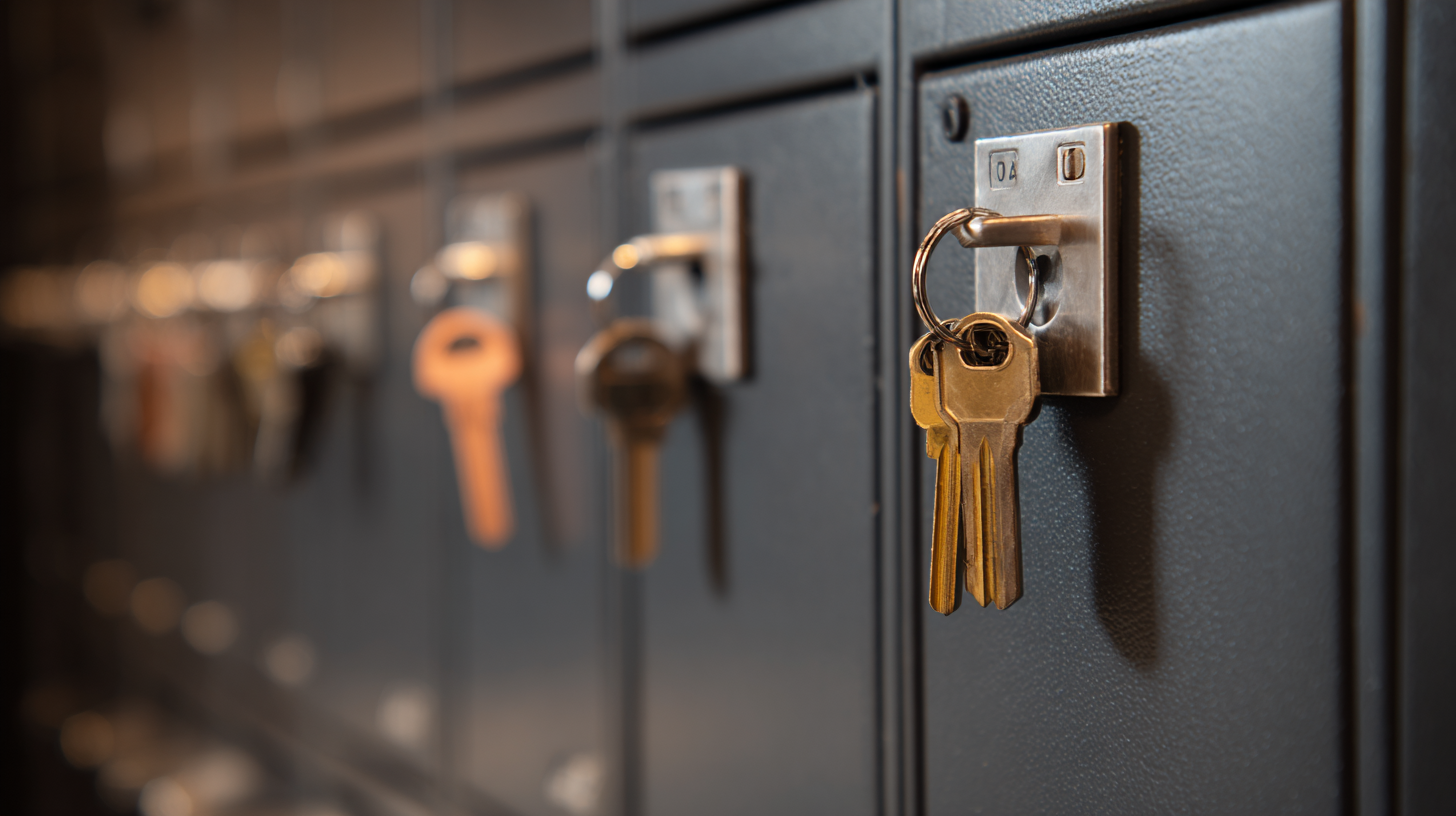
Another best practice is to establish clear protocols for key management. This involves creating comprehensive guidelines on who can access the keys, under what circumstances, and how they should be logged in and out of the system. Utilizing a digital management system can enhance accountability and track usage patterns. Regular audits of the key locker cabinets should also be scheduled to ensure compliance with security policies and to identify any potential vulnerabilities. By prioritizing these strategies, organizations can effectively incorporate key locker cabinets into their security framework, ensuring that their assets remain protected.
Case Studies: Successful Key Locker Cabinet Deployments in Various Industries
In recent years, key locker cabinets have emerged as essential components of security solutions across various industries. One prominent case study involves a large hospital system that faced challenges managing access to sensitive areas. By deploying a high-tech key locker cabinet, the hospital improved accountability and streamlined the process of key distribution among staff. With transaction logs and timed access, the system eliminated unauthorized access while ensuring that medical personnel could quickly reach critical locations without delays.
Another noteworthy example comes from the hospitality sector, where a luxury hotel chain implemented key locker cabinets to secure room keys and staff access. The integration of a robust access control system allowed the hotel to monitor key usage in real time. This not only enhanced guest security but also significantly reduced the risk of lost or misplaced keys, allowing hotel management to maintain a higher standard of operational efficiency. These deployments highlight the versatility of key locker cabinets as they adapt to varying needs, underscoring their role as a cornerstone in modern security solutions.
FAQS
: The evolution of key locker cabinets, which now incorporate advanced features like electronic locks, biometric access, and real-time tracking systems.
Modern cabinets offer enhanced security through smart technology, including user-friendly interfaces and cloud connectivity, allowing for better monitoring and management of keys.
Digital key lockers provide advanced features such as electronic access control and remote management, while mechanical lockers are simpler, more cost-effective, and eliminate concerns about power failures.
Organizations should weigh the benefits of modern technology against the reliability of conventional systems, along with their specific security needs and budget constraints.
Best practices include assessing security needs, selecting robust locking mechanisms, determining optimal cabinet locations, establishing clear protocols for key management, and scheduling regular audits.
Assessing security needs helps identify high-value areas that require controlled access, ensuring that key management is aligned with the organization’s security requirements.
Digital management systems enhance accountability and allow organizations to track usage patterns for better key management.
Cabinets should be easily accessible to authorized personnel while being discreetly positioned to prevent unauthorized access.
Regular audits help ensure compliance with security policies and identify potential vulnerabilities in key management practices.
By leveraging smart technology in key locker cabinets, organizations can monitor access, receive alerts, and maintain accurate records of key usage efficiently.
Conclusion
In today's security landscape, Key Locker Cabinets have emerged as essential tools for managing and securing access to keys across various settings. As the technology behind these cabinets has evolved, they play a pivotal role in preventing unauthorized access, ensuring that sensitive areas remain protected. When selecting a Key Locker Cabinet, it’s crucial to consider features such as durability, ease of access, and whether to implement a digital or mechanical solution, depending on your specific security needs.
Successful implementation of Key Locker Cabinets can significantly enhance an organization's security strategy. By following best practices and learning from case studies across different industries, businesses can effectively integrate these systems into their operations. At Beijing Landwell Electron Technology Co., Ltd., we understand the importance of key management solutions and strive to provide flexible options that offer complete control and oversight of key usage, paving the way for improved security protocols.
Related Posts
-
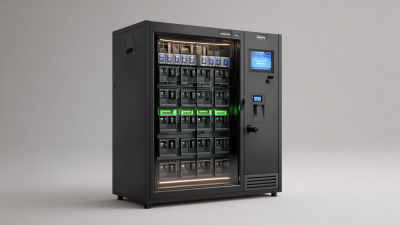
Ultimate Guide to Choosing a Smart Key Management Cabinet: Key Trends & Industry Insights for Global Buyers
-
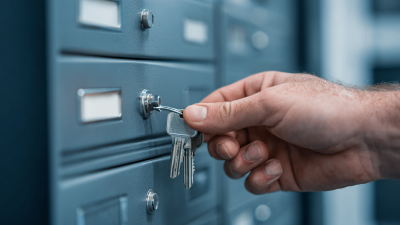
Understanding the Essentials of a Physical Key Management System: A Comprehensive Guide
-
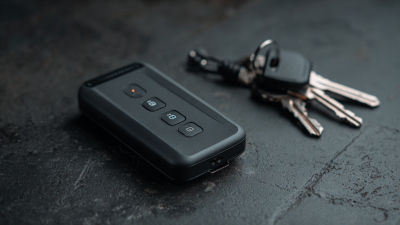
Understanding the Key Guard Box: A Comprehensive Guide to Its Features and Benefits
-
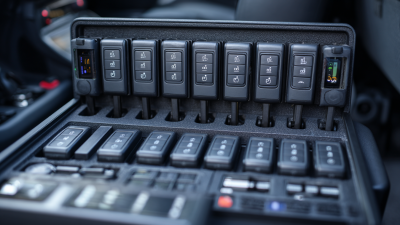
Innovative Examples of Fleet Key Management Box Enhancements for Efficient Operations
-
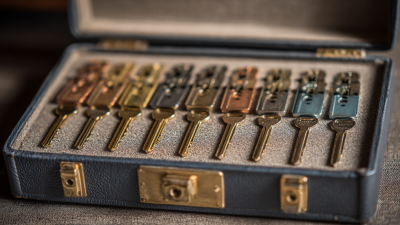
Choosing the Best Key Locking Organizer for Your Needs a Comprehensive Comparison Guide
-
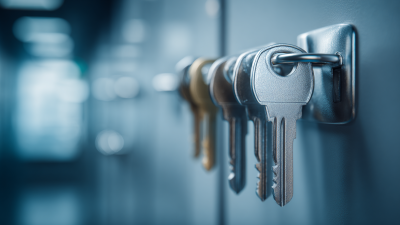
Digital Best Practices for Implementing an Effective Key Management System
Blog Tags:

